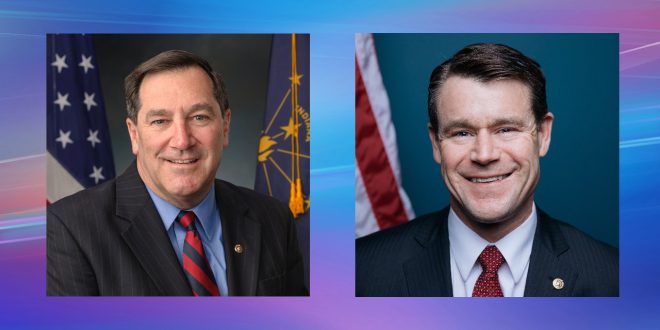Washington, D.C. – The bipartisan Law Enforcement Mental Health and Wellness Act, originally introduced by U.S. Senators Joe Donnelly (D-IN) and Todd Young (R-IN), is headed to President Trump to be signed into law. Donnelly and Young introduced the bill in the Senate in early April and it passed unanimously in May. U.S. Representatives Susan Brooks (IN-05) and Val Demings (FL-10) introduced the companion bill in the House of Representatives in late April and it passed the House in November and cleared the Senate tonight.
Donnelly and Young said, “We are pleased that our bipartisan legislation to support the mental health and wellness of our law enforcement officers will soon become law. Our law enforcement officers work every day to keep our families and communities safe, and it’s important we ensure they have access to the mental health services they need to remain ready to serve.”
Bryan Roach, Chief of the Indianapolis Metropolitan Police Department, said, “The Indianapolis Metropolitan Police Department (IMPD) is excited that legislation to assist and support law enforcement wellness and mental health has passed Congress and is on the verge of becoming law. The value of our officers’ mental health and wellness to the individual officer, the Department and the citizens they serve is meaningful. We strive to provide the best opportunities to succeed in our noble profession, and appreciate efforts of everyone involved with the creation and advocacy of this bill.”
Chuck Canterbury, National President of the FOP, said, “The passion Senators Donnelly and Young show for the mental health and wellness of our law enforcement officers should be the standard for every member of Congress. Our officers wear protective clothing and other equipment to keep themselves safe from physical harm, but they also face challenges to their mental health and well-being. It is time we take care of those who watch over and protect us in a job that is incredibly challenging, and the Law Enforcement Mental Health and Wellness Act will help do so. Unlike many other professions, sometimes you can’t leave the job at the office.”
The Law Enforcement Mental Health and Wellness Act would make grants available to initiate peer mentoring pilot programs, direct the Departments of Justice and Health and Human Services to develop resources for mental health providers based on the specific mental health challenges faced by law enforcement, and support law enforcement officers by studying the effectiveness of crisis hotlines and annual mental health checks.
It would also direct the Departments of Defense (DoD), Justice, and Veterans Affairs (VA) to confer about existing DoD and VA mental health practices and services that could be adopted by law enforcement agencies.
The legislation has the support of the Indianapolis Metropolitan Police Department, Fraternal Order of Police (FOP), the National Association of Police Officers (NAPO), the Major County Sheriffs of America (MCSA), the Federal Law Enforcement Officers Association (FLEOA), the National District Attorneys Association (NDAA), and the Sergeants Benevolent Association.
Recognizing the stress and trauma that law enforcement officers experience and in an effort to support officers, IMPD created initiatives through the Office of Professional Development and Officer Wellness and started a peer mentoring program. These efforts by IMPD helped inspire Donnelly’s and Young’s bill.






